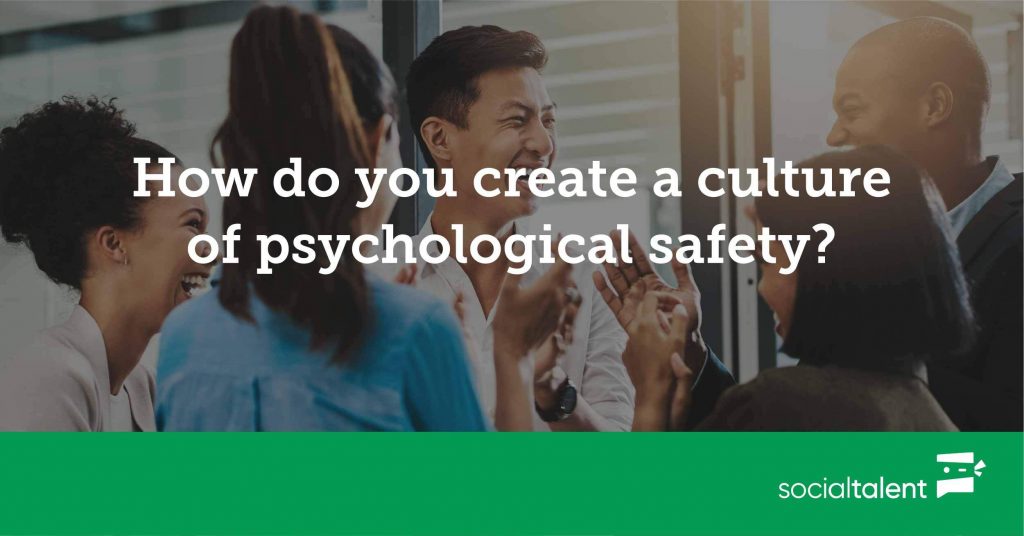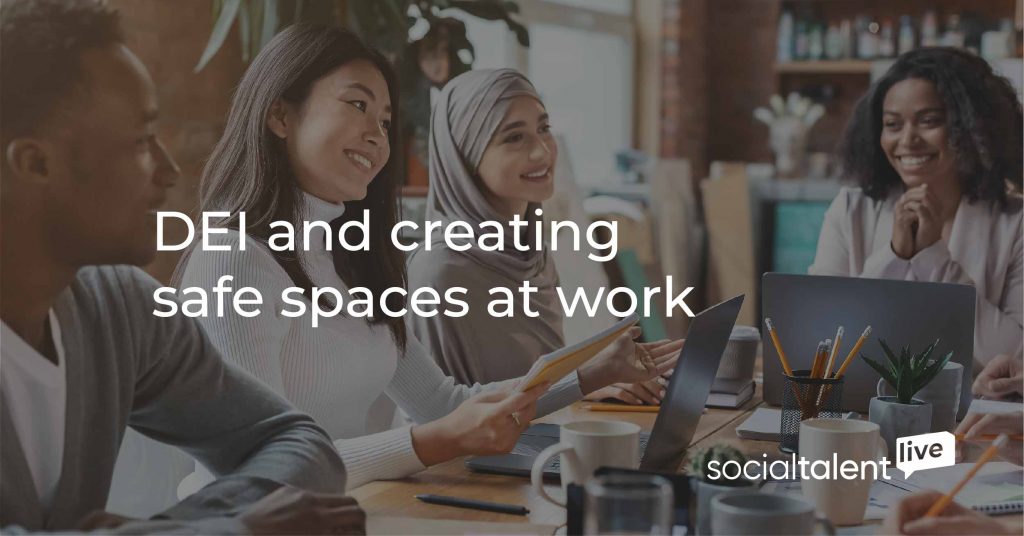How do you create a culture of psychological safety?
According to Gallup research, only 3 in 10 employees believe that their opinions count when at work. A recent Workhuman report found that around 32% of employees have felt lonely during their tenure at a company. And a 2021 CIPHR survey discovered that 36% of UK adults have experienced some form of discrimination in the workplace. Statistics like these, and many others, paint a very real picture of how treacherous an unchecked work environment can be. When employees don’t feel comfortable enough to speak up or be themselves for fear of rebuke or consequence, organizations need to ask themselves a very important question – do we foster and maintain a culture of psychological safety?

What is psychological safety?
According to Madison Butler, a renowned thought-leader within this discipline, psychological safety is: “the act of existing without fear.” Within the context of the workplace, it refers to how people get to show up every day and not suffer negative consequences as a result of who they are. When environments are psychologically safe, employees don’t have to hide portions of who they are in order to survive a working day. There is no fear of humiliation or punishment when speaking up about concerns, mistakes or even ideas. But when a workplace doesn’t feel safe to engage, employees will keep their heads down as the benefits of saying nothing will far outweigh the benefits of speaking up.
Check out Madison Butler on a recent episode of The Shortlist:
Why is psychological safety important?
Psychological safety creates a vital foundation of respect and belonging in organizations. According to recent McKinsey research, as much as 89% of employees deem psychological safety as an essential component of any business. And this echoes a comprehensive two-year study conducted by Google, which found that psychological safety was the most important dynamic in building successful teams.
In a recent LinkedIn newsletter, SocialTalent’s CEO Johnny Campbell, referred to it as a “no brainer” concept that was vital in enabling your teams to flourish. But beside the personal importance of psychological safety, the business impact is also worth noting. Employees who feel empowered, accepted and comfortable are invariably going to thrive, and this can lead to:
- Greater innovation
- Enhanced performance
- Improved engagement
- The creation of a culture of wellbeing and support
- An ability to embrace diverse perspectives
- An environment of trust
- Openness to feedback and growth
Psychological safety and DEI
The benefits of having a diverse workforce are widely known. Colverpop, for example, states that diverse teams make better business decisions 87% of the time. But without a safe environment where inclusion and belonging are truly championed, organizations will find it difficult to tap into this potential and retain the talent.
And while the effects of an unsafe working environment can affect everyone, those who come from more marginalized backgrounds will always feel the brunt to a greater extent. When you hold multiple identities or identify differently to a prescribed status-quo, it’s harder to find areas where you can exist.
Psychological safety is a key component of diversity, equity and inclusion initiatives. Organizations need to strive to hire more diverse talent. But simultaneously they also must commit themselves to ensuring that the working environment allows every single employee to thrive. The two prongs work in tandem and are vital for success. When diverse opinions, experiences and knowledge can be leveraged without fear, more employees will feel empowered to share alternative perspectives that everyone can benefit from.
Learn more about psychological safety and how to embed it into your organization
Psychological safety and the tactics required to bake it into the DNA of an organization are both important and comprehensive. So to help drive this conversation, we created an online webinar dedicated to this very topic:
SocialTalent Live: DEI and Creating Safe Spaces at Work
We brought together leading DEI thought-leaders and industry experts from global companies like Zalando, Avanade and Flex to give us their incredible insights on how to build, scale and maintain a culture of safety within organizations. Through panels and fireside chats, you will discover the knowledge and practical advice required to bolster your DEI initiatives by focusing on creating psychological safety.
Take a look at our amazing line-up of speakers and contributors:
- Vikki Leach, D&I Director at Zalando
- Hallam Sargeant, Chief Inclusion and Diversity Officer at Avanade
- Joanna Fennell, VP, Global HR Business Partner at Flex
- Salma El-Wardany, author, speaker, Founder of Digitally Human
- Joanne Lockwood, inclusion specialist, Founder of SEE Change Happen
- Joe Gerstandt, keynote speaker and inclusion strategist

